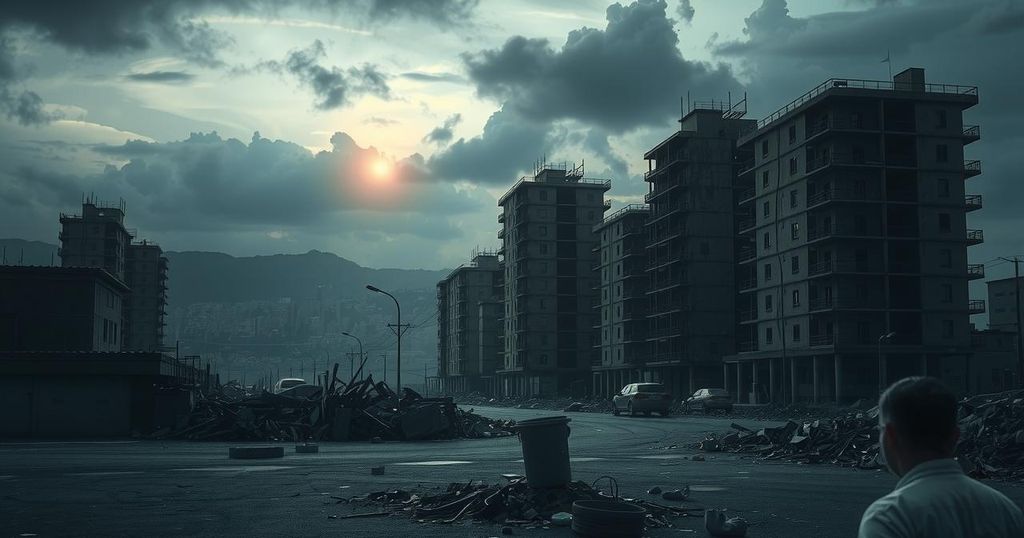Goma residents face immense fear and hunger following the M23 rebel takeover. Access to food and basic services has been severely impacted, leading to dire living conditions. The situation recalls the violence of earlier conflicts, with mixed feelings about the presence of the rebels in the city, as some residents seek stability.
Residents of Goma, near the Rwandan border in the Democratic Republic of the Congo, express deep fear and hunger following the recent takeover by the M23 rebel group. Judith Saima, a merchant, described her hopelessness amid the violence, as fighting has left bodies in the streets and essential services disrupted. Ngise Ngeleka reported how a nearby victim of the conflict remained unburied, underscoring the perilous situation.
Adeline Tuma lamented her dire situation, stating, “We have nothing left to eat. My children cry from hunger. I make porridge without sugar.” With local trade routes severed and supplies effectively banned, residents face a severe food crisis. Boats that typically bring supplies have been prohibited since M23 occupied the port of Minova, restricting access across the Rwanda border as well.
Water and electricity cut off over the weekend created further distress; while some services have gradually returned, residents struggle to access clean water, turning to Lake Kivu for relief. The M23 group is notorious for past violence in the region, and current tensions mirror a disturbing history from earlier occupations.
At least 45 individuals have died and over 2,000 suffered injuries amid the renewed conflict, which has overwhelmed local hospitals and stymied humanitarian efforts. Street children are seen wearing abandoned uniforms of retreating troops, further illustrating the chaos.
M23’s leaders have expressed their intention to remain in Goma, urging citizens to resume daily activities and pledging to reopen schools quickly. There is a significant risk of a return to the turmoil of the 1990s, and opinions among residents are mixed, with some hopeful for improved security under rebel control.
Not all views are negative towards M23’s presence; one senior UN official noted that many citizens are weary of instability and seek stability. A doctor echoed this sentiment, advocating a reassessment of the government’s role in citizen safety. As Goma stands at a crossroads, the residents’ future remains uncertain, dependent on the evolving situation.
The post-war environment in Eastern DR Congo is characterized by repeated cycles of violence and humanitarian crises. The M23 rebel group, an offspring of previous insurgent factions driven by ethnic Tutsi leadership, has historically exploited the region’s mineral wealth while perpetuating violence against local populations. Control over trade routes, such as those to Rwanda, plays a crucial role in the socio-economic dynamics of the region. Recent events echo past upheavals, raising concerns about a return to prolonged conflict.
The situation in Goma remains dire as the M23 rebel group’s occupation incites fear and longing for security among its residents. While some see potential for a return to stability and trade, the humanitarian crisis is severe, marked by significant casualties and disrupted access to essential services. The complex interplay of local and regional political dynamics complicates the path to peace and recovery, as the community grapples with an uncertain future post-conflict.
Original Source: www.theguardian.com






